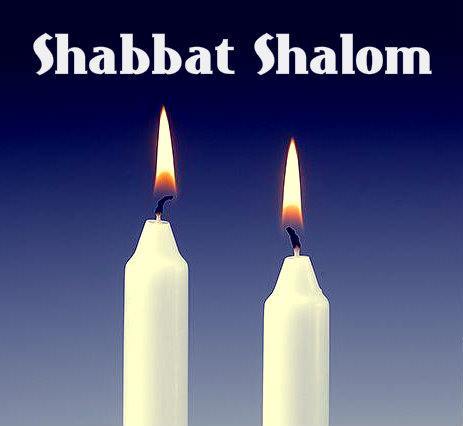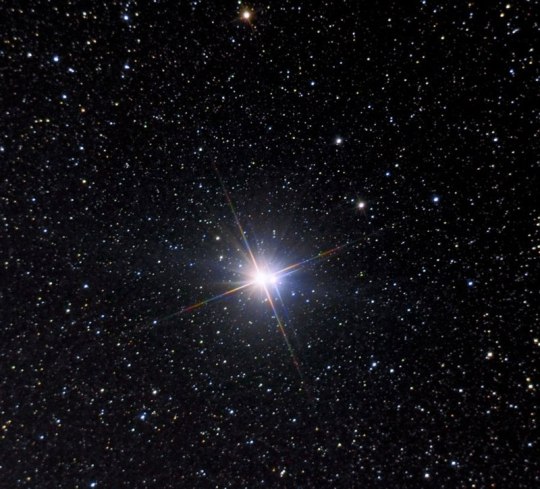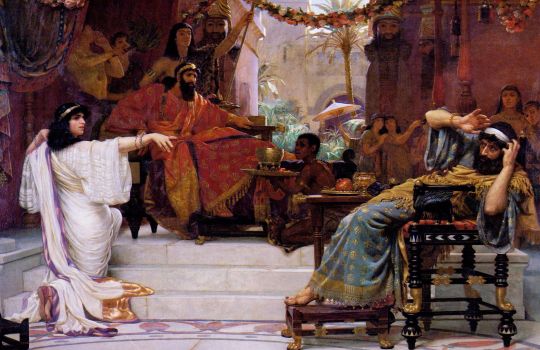#oneshul
Photo

23 notes
·
View notes
Text
Chukat: The Brass Serpent

“The LORD sent fiery serpents against the Israelite People [for the sin of doubting Moses]. They bit the people, many of whom died. The people came to Moses and begged him to help them, by interceding with God. The Lord said to Moses,‘Make a fiery serpent—Seraph of brass, and mount it on a standard. If anyone is bitten looks upon it, they shall recover.’ Moses did so, and the people were healed.”
--Numbers 21: 6-9
I am Nechushtan, the Brass Serpent, Healer of the Israelites from the plague they brought down upon themselves. How dared they to doubt the leadership of Moses, as well as complain about the manna, the bread from heaven? Well, God told Moses to construct me, and I healed them from the fiery bites of the serpent-plague.
And yet, I daresay that you have never heard of me, nor ever seen my like before! For a God Who forbade the practice of idolatry, is it not strange that He authorized the building of an idol—myself? Yes, yes, I hear you say; the purpose of Nechushtan was not to be an object of worship; it was to be a source of healing, albeit a dramatic one. How long do I appear in the text of the Torah? For five verses only—that is a short episode, indeed.
Never forget that Torah is not like your post-Modernist literature. A character or object may appear for just a few verses, and then vanish just as quickly. I, Nechushtan, do reappear later in the text—not the Torah’s, but in Prophets, during the reign of the reformist King Hezekiah:
“Hezekiah abolished and destroyed all forms of idolatry. He broke into pieces the brass serpent that Moses had made, for the Israelites had been making offerings to it; it was called Nechushtan.”
--II Kings 18:4
So, clearly, despite my long absence from the text, I still managed to influence Israelite worship—or, at least, idolatry. What is the lesson?
It is in the nature of you human beings to collect and venerate objects you deem sacred, blessed, or just lucky. Whether or not the plague of the fiery serpents actually occurred, whether Moses constructed me, only to have Hezekiah destroy me, centuries later—I served my purpose. I gave some mystical quality to the text—how many times can one read of the Israelites angering their short-tempered Deity, and His punishing them? Instead, I began a body of legend that still persists, today. All glory to me, Nechushtan, the Brass Serpent!
______________________________________________________________
Rabbi David Hartley Mark is from New York City’s Lower East Side. He attended Yeshiva University, the City University of NY Graduate Center for English Literature, and received semicha at the Academy for Jewish Religion. He currently teaches English at Everglades University in Boca Raton, FL, and has a Shabbat pulpit at Temple Sholom of Pompano Beach. His literary tastes run to Isaac Bashevis Singer, Stephen King, King David, Kohelet, Christopher Marlowe, and the Harlem Renaissance.
#progressive judaism#judaism#jewish#torah study#drash#parsha#weekly parsha#chukat#hukath#chukkas#rabbi david hartley mark#shabbos#shabbat#sabbath#oneshul#shabbat shalom
26 notes
·
View notes
Photo

13 notes
·
View notes
Text
Tu B’Av starts at sunset. More information below.

https://www.myjewishlearning.com/article/tu-bav/
8 notes
·
View notes
Photo

10 notes
·
View notes
Text
Nitzavim: You Have A Choice
youtube
#progressive judaism#judaism#jewish#parsha#weekly parsha#drash#shabbos#shabbat#sabbath#torah study#nitzavim#deuteronomy#oneshul#shabbat shalom
4 notes
·
View notes
Text
Love movies? Here's a list of 253 Jewish movies compiled by rabbis.

Go 'way beyond Fiddler On The Roof... Learn a little, enjoy a lot! - https://rabbiatthemovies.com/
5 notes
·
View notes
Text
Pesach (Passover) continues this evening, and we start counting the Omer. More information below.

Link: https://bit.ly/2IwFOEQ
18 notes
·
View notes
Text
OneShul will cease active operations at the end of 5779.

Reasons here: http://oneshul.org/
All of us thank you for the pleasure of your company these past nine years. We wish you a joyous and richly blessed 5780.
2 notes
·
View notes
Text
Ki Tavo: Blessings, Curses, and a Holy Marriage
youtube
#progressive judaism#judaism#jewish#parsha#weekly parsha#drash#shabbos#shabbat#sabbath#torah study#ki tavo#deuteronomy#oneshul#shabbat shalom
2 notes
·
View notes
Text
Eikev: Joshua Rebukes Moses

I am Joshua ben Nun; orphaned in Egypt—my parents perished while building the pyramids that dotted the Valley of the Kings. It was Jochebed, mother of Moses, who took me in, may she rest in peace. I recall being a small child, when Moses was already a teenager—Jochebed often took me to the Pharaoh’s Palace to visit him. I thought of him as a mix of an older brother and a kindly uncle. I wept when she told me Moses that had fled from Egypt, fearful of the punishment that would follow his having killed a slave driver.
Moses has been my mentor and guide for all these years in the Wilderness; I was fortunate to be with him when he climbed Mt. Sinai, there to commune with the Almighty and receive the Ten Commandments. I did not join him on the mountaintop; I hid amid the boulders along the path. There, I witnessed the battle between Moses and the Angels who did not wish to relinquish the Torah, until God intervened.
The Generation of the Exodus is gone; now, he and I lead the Generation of the Wilderness. I was happy to hear that My Lord Moses wished to teach Torah to these youngsters. He and I had had such high hopes for them! After all, they were not tainted by the slavery experience; they had been nurtured in freedom, under God’s protection, who fed them with manna, and so much more. Unfortunately, it is not unusual for headstrong young people to spurn their elders’ instruction, and these Israelites had not hesitated to participate in the riotous orgy brought on the Midianites and their god, Baal Peor. Sadly, many of them paid for their sins with their lives.
Nonetheless, could there not be a time for reconciliation? I looked forward eagerly to Moses’s Torah lecture; surely he would find a way to make peace between the people and their somewhat testy deity. Was He not a God full of mercy and compassion, extending forgiveness to the thousandth generation? Instead, Moses lectured them about their backsliding:
“If you do forget the LORD your GOD and follow other gods to serve them... I warn you this day that you shall certainly perish... because you did not heed the Lord your God.”
--Deut. 8:19-20
And that was not all: Moses recounted all of their sins for them, and laid it on very thick. It disturbed and frightened me.
When Moses was done with his teaching, bitter as it was, I gave him my strong right arm on which to lean, as I escorted him to his tent.
“What think you of my address to the people, hey Joshua?” Moses asked me.
“May I speak frankly, My Lord?” I answered. When he nodded, I responded to him quickly and precisely: “It seems to me, Rabbi Moses, that you might have sweetened your words a little. When I behold this people, the work of God’s hands, I consider that they are unlettered, unsophisticated—have they not been living in the wilderness for all of their lives? Since their parents perished in this great and savage desert, they have no one except you, Sir, to teach them the proper way for Jews to live.”
Moses stopped walking, and looked directly at me: I swear, it was as though he could see straight into my heart and soul.
“You are right, my disciple, to question me; never fear—I am not angry. Yes, you are right; I did speak harshly with the people. But life is very hard, and one must be steeled to difficulties in order to overcome them. Hear me, Young Joshua: in days to come, there will be many Jews who behave un-Jewishly, who cheat and lie and forget their heritage. My duty is to warn them of the consequences. And those who heed me will understand how to act.”
______________________________________________________________
Rabbi David Hartley Mark is from New York City’s Lower East Side. He attended Yeshiva University, the City University of NY Graduate Center for English Literature, and received semicha at the Academy for Jewish Religion. He currently teaches English at Everglades University in Boca Raton, FL, and has a Shabbat pulpit at Temple Sholom of Pompano Beach. His literary tastes run to Isaac Bashevis Singer, Stephen King, King David, Kohelet, Christopher Marlowe, and the Harlem Renaissance.
#progressive judaism#judaism#jewish#parsha#weekly parsha#drash#rabbi david hartley mark#shabbos#shabbat#sabbath#torah study#ekev#eikev#deuteronomy#oneshul#shabbat shalom
3 notes
·
View notes
Text
Vaetchanan: God and Moses

Scene: a windswept mountaintop, named Pisgah. Tumbleweeds fly about in the strong wind; autumn is coming. A thin, tired-looking man with a long grey-white beard, our Moses, is struggling to attain the heights. He finally succeeds, panting; he takes a deep breath, sips from his leathern water-flask, and stands, waiting. And waiting.
Moses: Lord God? It is I, your humblest servant, Moses. Will it please You to speak to me.
The lightning cracks and the thunder rolls, but there is no answer.
Moses (sighs): Lord God, it is not like I don’t have things to do. I am the only one commanded to ascend and speak with You. I have no time; I must go down to judge the people’s litigations. They are stubborn and stiff-necked; I had thought that this Generation of the Wilderness would be more—pliable, but I was wrong. They are as sinful and full of pride as their departed ancestors, who perished at—at Baal Peor, or the Golden Calf, or Korach’s Rebellion—I would rather speak to you of their successes, but cannot recall any.
The Voice of God: I am here, Moses. Where are your judges of tens, judges of twenties, and so on? Did you not remind the Israelites of your appointing them, just a short time ago?
Moses: My judges—pah! A bunch of self-centered good-for-nothings—You killed them (as they rightly deserved) for taking part in the People’s various orgies. And only am I escaped to tell You, and afterwards judge the saving remnant of my people.
God: Shall I send lightning-bolts to fry these rebels, Moses? Let me prepare them—
Moses: No, Lord God, no. I can handle them, and Joshua, my successor, will be able to deal with them, too. I only beg You to deal with them in compassion. Yes, they have faults enough, but who else will be Your treasured nation, and the apple of Your eye, if not them? You chose them long ago; yes, when you ordered Abram and Sarai, “Get thee out of Haran, you and your household, and go to a land of which I will tell you.” That covenant must stand.
God: Thank you for reminding Me. I had not forgotten, but I have a great deal to remember, what with plagues in Egypt, volcanic eruptions in Santorini, and answering the prayers of the natives in North America....
Moses: Where is that?
God (hastily): Never mind. There. So. What is your next step?
Moses: I know, Dear Lord, that You have ordered me not to enter the Land; I will die on this side Jordan. I am reconciled, but it is hard, so hard, Lord....
God: Take heart, My Servant. I will let you down easy. Your passing will be like a hair removed from a cup of milk. But you have a great deal more to do, before you go to be with Me, forever.
Moses: And what is that?
God: Tell My people that the penalty for backsliding and idolatry will be exile. If they sin, I will scatter them among the nations. Tell them that, when they look into their hearts and examine their souls, they will know that I will not abandon them forever. It may be hard for mortals to comprehend, but I am compassionate at the core: I will not forsake them, but will be with them in the countries where they come. Tell them that, Rabbi Moses. Teach them....
Clouds settle over the mountaintop, obscuring Moses from view
______________________________________________________________
Rabbi David Hartley Mark is from New York City’s Lower East Side. He attended Yeshiva University, the City University of NY Graduate Center for English Literature, and received semicha at the Academy for Jewish Religion. He currently teaches English at Everglades University in Boca Raton, FL, and has a Shabbat pulpit at Temple Sholom of Pompano Beach. His literary tastes run to Isaac Bashevis Singer, Stephen King, King David, Kohelet, Christopher Marlowe, and the Harlem Renaissance.
#progressive judaism#judaism#jewish#parsha#weekly parsha#drash#rabbi david hartley mark#shabbos#shabbat#sabbath#torah study#va'etchanan#vaetchanan#deuteronomy#oneshul#shabbat shalom
3 notes
·
View notes
Text
Tisha B’Av starts at sunset. More information below.

https://www.youtube.com/watch?v=vAoSODDghE8
3 notes
·
View notes
Text
Balak: A Misunderstood King

When people read the Story of Balaam, they always focus on the Talking Donkey. I can’t understand why. The Torah Portion is named after me, King Balak of Moab, and, after all, talking donkeys are nothing unusual. I daresay, Reader, that you may have heard one or two, or several, mainly in politics, which we had in my day, as well, albeit in a minor, less dangerous form. And the fact is that the Donkey showed a great deal more intelligence than either its rider, hapless Balaam, or my several messengers, who keep returning to Balaam and offer him riches, only to be refused. The story reads like a fairytale, which it well might have been.
Let us examine the facts of the tale, eliminating Balaam—yes, yes, I know that he composed a few lines of poetry—quite a few, in fact—but only a smallish fragment made it into your prayerbook:
How goodly are your tents, O Jacob,
Your dwelling-places, O Israel!
Is that it? Is that all? I suppose that it’s a big deal when a pagan prophet’s verse makes it into an ethically monotheistic people’s prayerbook.
When I read it, I asked Balaam, “Why are you praising this pesky bunch of nomadic interlopers?”
“The God of Israel touched my heart,” he replied, getting all moony, “and I was inspired to write poetry on His behalf.”
“Not a great deal of poetry,” I huffed, “and after all, I was the one who hired you.”
“Are you going to pay me, Majesty?” he asked.
Can you imagine—he still believed that I was going to pay him for the non-curse which he did not deliver to the Israelites. The nerve of him!
Dear Reader, I hope that you will listen while I make my case. The fact is that Israel and Moab are related—we were originally produced by that—um—unfortunate liaison between Lot and his daughter. About that I can only say, “The less said, best said.”
Furthermore, Bible scholars, who know a great deal more about these things than I do, believe that the relationship between Moab and Israel was mixed—you either accepted us as neighbors, or you warred against us, often for most confusing reasons. I cannot figure out the points in our mutual history where you oppressed us, especially when we were living in peace. I hired Balaam in the first place because my god, Chemosh, ordered me to curse the Israelites. I think. How can one converse with a god of stone? And didn’t your God inform you not to take advantage of or destroy the weak?
When all is said and done, however, remember that the Torah Portion is named after me—not that foolish, greedy prophet; not the angel (though that would have been nice; I like angels), and certainly not the donkey. It is named after me, and why? Because, in my misguided attempt to curse Israel, I contributed to their legend—that of an unstoppable, eternal people. It’s not as though they will always be right, however. I can only pray to their God that they not oppress other nations.
______________________________________________________________
Rabbi David Hartley Mark is from New York City’s Lower East Side. He attended Yeshiva University, the City University of NY Graduate Center for English Literature, and received semicha at the Academy for Jewish Religion. He currently teaches English at Everglades University in Boca Raton, FL, and has a Shabbat pulpit at Temple Sholom of Pompano Beach. His literary tastes run to Isaac Bashevis Singer, Stephen King, King David, Kohelet, Christopher Marlowe, and the Harlem Renaissance.
#progressive judaism#judaism#jewish#parsha#weekly parsha#drash#rabbi david hartley mark#shabbat#shabbos#sabbath#torah study#balak#oneshul#shabbat shalom
5 notes
·
View notes
Text
Purim starts at sunset tonight (if you do not live in a walled city) and lasts for one day.

More about Purim: https://bit.ly/2Ju3Rp1
20 notes
·
View notes